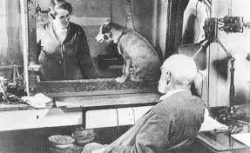Into Sixth Form Event
On Tuesday 9th November, BMS hosted our ‘Into 6th Form’ evening. The Humanities and Social Sciences Faculty was pleased to meet all our potential students, many of which expressed...
Filter by Category
Filter by Author


























































































































































































On Tuesday 9th November, BMS hosted our ‘Into 6th Form’ evening. The Humanities and Social Sciences Faculty was pleased to meet all our potential students, many of which expressed...
Posted by Stephanie Knowles

On Friday the 9th of November we were excited to host the annual Sixth Form Open Evening. Many students and their families joined us at the event during the night. All the...
Posted by Gabriela Zhelyazkova

On Thursday 4th November our outstanding Y12 students completed a successful ‘EPQ study day.’ Students worked very enthusiastically on their individual research...
Posted by Giles Monks

Lauren Coleman 13A Lauren is another of our fantastic Year 13 students. She is always hard working and shows dedication to her studies; making excellent use of her study periods....
Posted by Giles Monks

Calum Walsh 13 Elm Calum is one of our outstanding Year 13 students. He has proved a fantastic ambassador for the school helping Mrs Jackman by taking visitors on tours around the...
Posted by Giles Monks

Year 13 psychology students were fully engaged during our recent Drop Everything And Read event on Wednesday. They read more deeply about Pavlov’s famous study into conditioning...
Posted by Gabriela Zhelyazkova

Bushey Meads to Oxbridge This year, year 13’s ambition and motivation stood out as the year with the most Oxbridge applications so far in BMS history! The sixth form common...
Posted by Gabriela Zhelyazkova

Last week, we had some of our wonderful Sixth Form students helping out with our preparations to support the NHS colleagues who delivered Covid vaccines available for students....
Posted by Giles Monks

Khushi Aggarwal 12 Willow An excellent student, Khushi is working extremely hard in all her subjects. She is always willing to support her peers and the staff at Bushey Meads...
Posted by Des Timotheou

Verity Alcorano 12 Sycamore Verity is one of our new to school students joining us in our outstanding Sixth Form. She has settled in very well and is enjoying her time here,...
Posted by Giles Monks
On Tuesday 9th November, BMS hosted our ‘Into 6th Form’ evening. The Humanities and Social Sciences Faculty was pleased to meet all our potential students, many of which expressed an interest in studying more than one subject offered by the faculty. Indeed, the majority of the 6th form study at least one of the subjects offered. These include the traditional humanities subjects like history and geography as well as the opportunity to continue to study, or even begin a journey studying, business studies, economics, psychology and sociology. In addition, RE is offered as philosophy and there is also the option of studying A level politics and / or law.

Last week, we had some of our wonderful Sixth Form students helping out with our preparations to support the NHS colleagues who delivered Covid vaccines available for students....

We have now had a week of our superb ‘Bridging Fortnight’ for Year 11 into Year 12 students. This programme has been organised to support all Year 11 students...